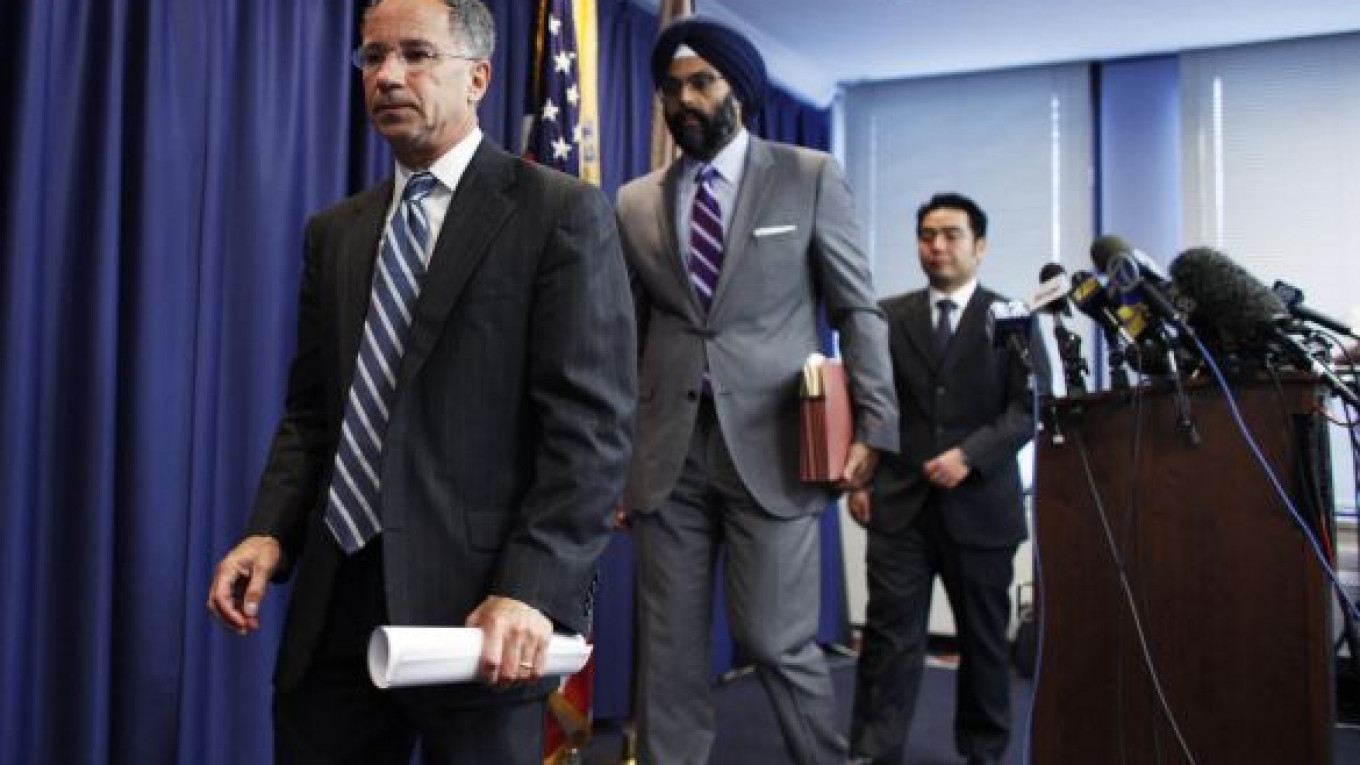SAN FRANCISCO — The two Russians arrested in what prosecutors call the largest online fraud case brought in the U.S. were caught through a combination of high-tech tools, dogged detective work and sheer luck.
The propensity of the wealthy young Russians to travel provided authorities with their big opportunity to collar them in the Netherlands last year.
The alleged moneyman, Dmitry Smilyanets, 29, has been extradited to the U.S. to face the indictment, unsealed on Thursday in federal court in Newark, New Jersey, while one of the most-sought-after alleged hackers on the planet, Vladimir Drinkman, 32, is still fighting his move from the Netherlands.
Three other suspects remain at large, and prosecutors took the unusual step of naming them in what law enforcement sources said was a slap at uncooperative Russian authorities.
People working on the case said they believe Drinkman is one of the key conspirators in a credit card fraud case involving Miami's Albert Gonzalez. Gonzalez was arrested in 2008 and is now serving a 20-year sentence for crimes including stealing 130 million credit cards from Heartland Payments Systems.
Drinkman and one of the men still free in Russia, Alexander Kalinin, 26, of St. Petersburg, were identified only as Hacker 1 and Hacker 2 in the main indictment of Gonzalez, when the U.S. Secret Service did not know their names.
Both were publicly identified for the first time Thursday, and the indictment just unsealed said they were prodigious hackers, breaking into everything from banks and conglomerates to retailers.
Though it took years to get those two names, people familiar with the case said, Smilyanets was easier to trace. That was in part because his alleged role was to sell the massive hoards of credit cards, which brought him into contact with more people, and in part because he kept a high profile in Russia and on networking sites.
Electronic Gaming Team
Smilyanets was most widely known as the founder of a championship electronic gaming team called Moscow 5, which traveled the world for competitions.
"He was well known in certain circles," Smilyanets' attorney, Bruce Provda, said. Provda said he intended to fight the indictment "vigorously" and was looking into the circumstances of his extradition.
Agents got information that Smilyanets was traveling to Europe last year and that he would travel with a friend on the trip. When the name of his companion emerged as Drinkman, who had been one of several suspected Gonzalez collaborators, the agents reinvestigated the name and concluded that he was one of the two hackers they had been chasing.
"Here's the world's biggest hacker," a person familiar with the case said. "We got lucky."
Drinkman posted pictures of his trip, dropped other clues and left his phone on, transmitting location information and allowing agents to make an educated guess about what hotel the men were staying in.
They called the hotel and were told those guests were sleeping. The next morning, as they prepared to board a tour bus, Dutch detectives confronted and arrested them.
Drinkman's attorney did not return e-mails seeking comment late Thursday. The Secret Service referred questions to prosecutors.
A Message from The Moscow Times:
Dear readers,
We are facing unprecedented challenges. Russia's Prosecutor General's Office has designated The Moscow Times as an "undesirable" organization, criminalizing our work and putting our staff at risk of prosecution. This follows our earlier unjust labeling as a "foreign agent."
These actions are direct attempts to silence independent journalism in Russia. The authorities claim our work "discredits the decisions of the Russian leadership." We see things differently: we strive to provide accurate, unbiased reporting on Russia.
We, the journalists of The Moscow Times, refuse to be silenced. But to continue our work, we need your help.
Your support, no matter how small, makes a world of difference. If you can, please support us monthly starting from just $2. It's quick to set up, and every contribution makes a significant impact.
By supporting The Moscow Times, you're defending open, independent journalism in the face of repression. Thank you for standing with us.
Remind me later.






